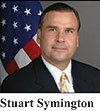Violence against women touches Rwanda as it does every other nation in the world. Gender-based violence is a global pandemic that knows no national or other boundaries; it afflicts women regardless of their educational level, income, religion, or race.


Violence against women touches Rwanda as it does every other nation in the world. Gender-based violence is a global pandemic that knows no national or other boundaries; it afflicts women regardless of their educational level, income, religion, or race.
Today, in different parts of the world, this violence threatens women and girls at every point in their lives - from female feticide, to domestic violence, from inadequate access to education to poor healthcare and nutrition, and from child marriage to sex trafficking and rape, from neglect to the ostracism of widows and the aged.
This year, Rwanda commemorated the "16 Days of Activism against Gender Violence” beginning with the International Day for the Elimination of Violence Against Women on November 25 and ending December 10, with International Human Rights Day.
But the work of the past 16 days is not enough. Our challenge is to work together every hour of every day everywhere in the world to free women from violence.
Together, we can and should stand up to the impunity that has left some of the most egregious perpetrators unaccountable for their crimes. Together, we must advance the status of women and girls around the world until every one of them is valued and not vulnerable.
We must not forget boys and men as we seek to prevent violence and address changing gender attitudes. We must acknowledge that males, too, can also be victimized because of their gender. Lastly, we must highlight and promote effective programs that are already demonstrating success.
These 16 Days have been a sobering reminder that gender-based violence has profound socio-economic consequences for all of society.
Gender-based violence not only undermines the possibility of gender equality, but also negatively affects women’s health care, education, and political and economic participation.
The violent targeting of women is also used as a tactic of war, as was witnessed in the North Kivu province of the Democratic Republic of Congo in July, where rebel groups brutally raped 200 women and girls over the course of four days, just miles away from a UN peacekeepers’ base.
When used in situations of conflict, sexual violence and rape often fuel conflict and ravage entire communities, destroying the very fabric of society.
This year, the 16 Days Campaign came on the heels of the 10th anniversary of UN Security Council Resolution 1325 on Women, Peace and Security, thus affording the international community an opportunity to bolster efforts to treat women not merely as victims of violence, but rather as agents of peace and reconciliation.
The only way to achieve our goals - to reduce the number of conflicts around the world, to eliminate rape as a weapon of war, to combat the culture of impunity for sexual violence, and to build sustainable peace - is to draw on the full contributions of both women and men in every aspect of peacemaking, peacekeeping, and peace building.
The United States commends Rwanda’s leaders and its people - not only in the region, but on the continent - for your efforts to eliminate violence against women. Today, in Darfur, many women and girls are alive and well today only because Rwandan soldier-peacekeepers are there providing protection. Rwandans should also be proud of their 182 female police officers that recently deployed to Darfur to serve as gender-based violence advisors to local police - the first African contingent of its kind.
At home, Rwanda has developed and implemented innovative approaches to reduce violence and to ensure that women who have been abused get the support they need.
I have been particularly impressed by Rwanda’s sensitization campaigns, the Gender Desks in police stations throughout the country, and the new Isange One-Stop Center in Kigali, which brings together medical, psychological and legal help in one place.
Throughout the world and in Rwanda great challenges remain, however, Rwanda is moving to the forefront of global efforts to achieve lasting positive change and end gender-based violence.
The United States supports Rwanda’s efforts, and is working bilaterally and multilaterally to define gender-based violence not as solely a woman’s issue, but one of international human rights and security.
We are taking action on the ground, training peacekeepers on gender-based violence awareness and prevention activities, working with NGOs to ensure men’s engagement in preventing violence against women, and partnering with religious leaders of all faiths to incorporate these messages into their outreach.
The economic empowerment of women is also integral to any sustainable approach to eradicating violence against women, as studies show that women who control their own resources are less vulnerable to being victimized because of their gender.
These 16 Days have offered an opportunity to renew the commitment to freeing women from the nightmare of violence, whether the abuse occurs in the home behind closed doors, or in the open fields of armed conflict.
When women are accorded their rights and afforded equal opportunities in education, health care, employment, and political participation, they lift up their families, their communities, and their nations - and act as agents of change.
As Secretary Clinton recently noted, "Investing in the potential of the world’s women and girls is one of the surest ways to achieve global economic progress, political stability, and greater prosperity for women - and men - the world over.”
The author is the US Ambassador to Rwanda.


